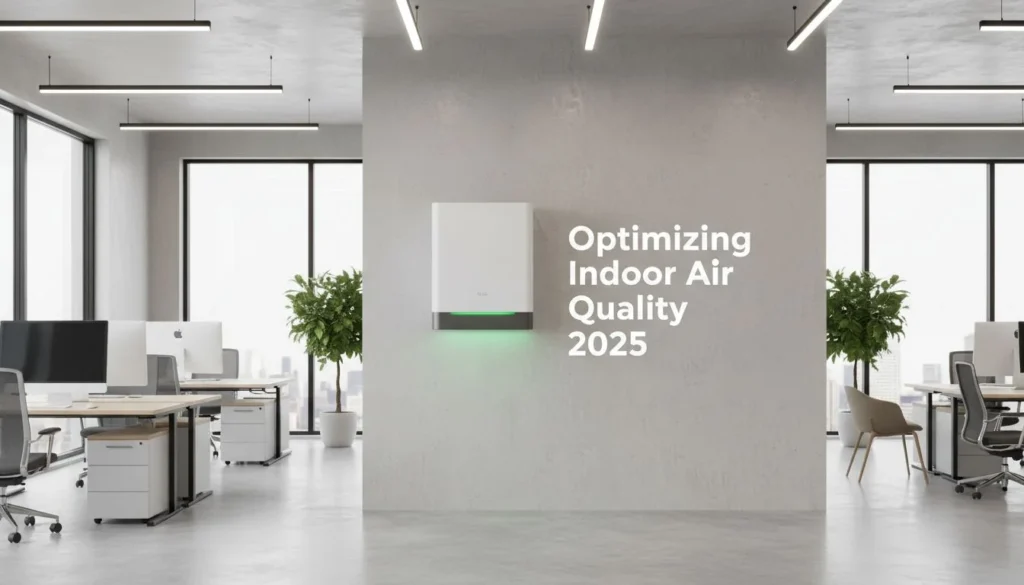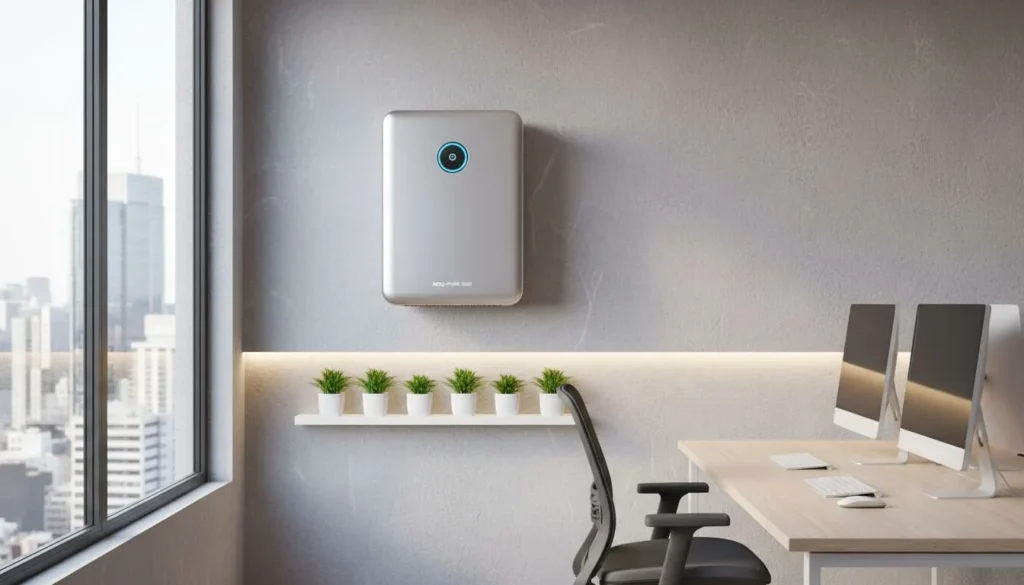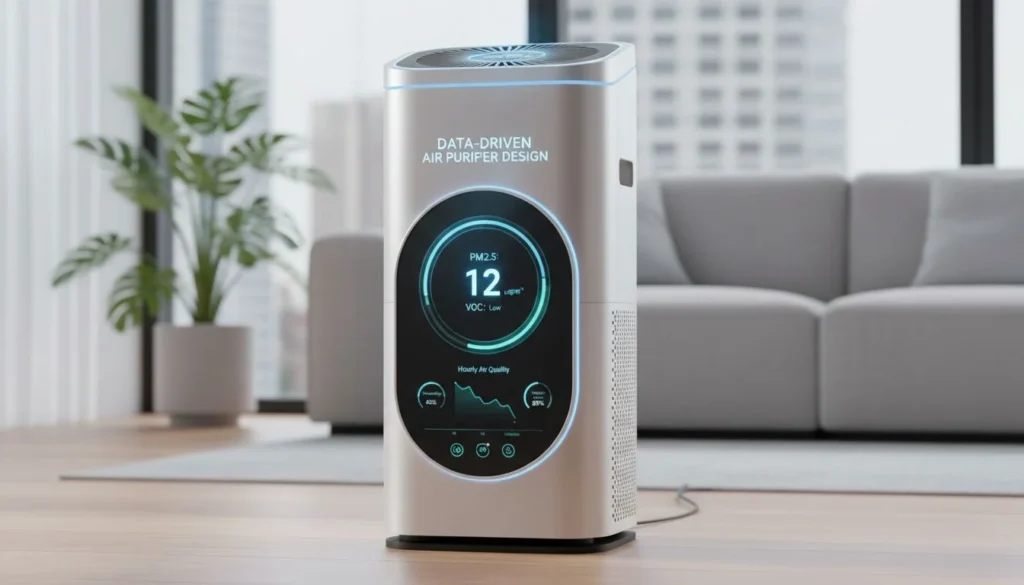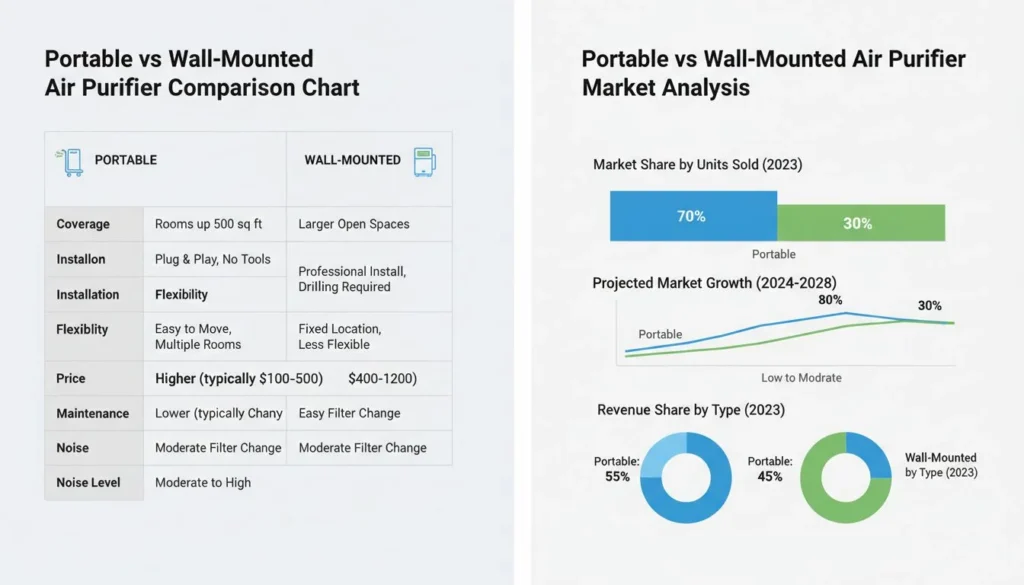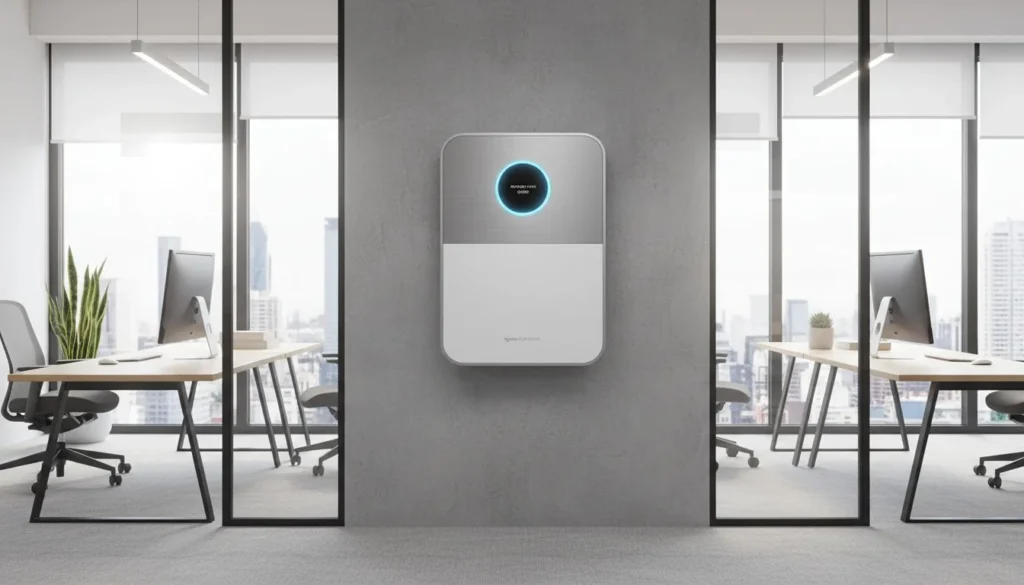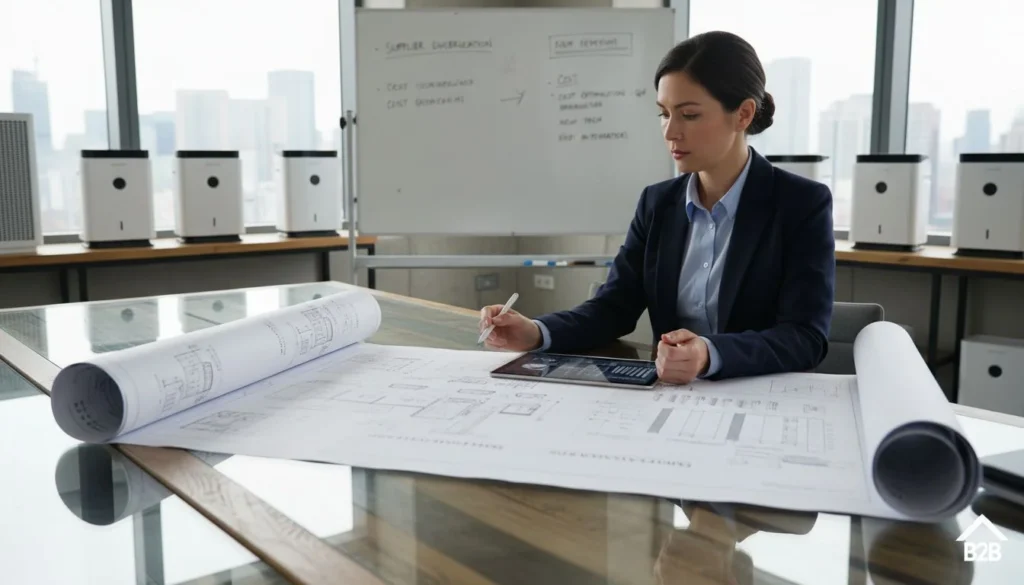HEPA filters are a popular choice in air purification, used to capture airborne particles effectively and improve air quality across various environments. In recent years, their high efficiency in removing dust, allergens, bacteria, and even viruses has made them essential in air purifiers for homes, schools, hospitals, and offices.
What is a HEPA Filter?
HEPA (High-Efficiency Particulate Air) filters remove contaminants from the air by trapping 99.97% of particles as small as 0.3 microns1, including dust, pollen, pet dander, and some bacteria and viruses. Their efficiency makes them ideal for environments where clean air is essential. For instance, HEPA filters are particularly effective at reducing allergens, which can alleviate respiratory issues in sensitive individuals (source).
Understanding how HEPA filters work, their benefits, and limitations helps users choose the right air purifier. Continue reading to explore more about HEPA filters, other filtration technologies, and how they compare.
Yes, HEPA filters are suitable for medical facilities.True
Due to their high efficiency, HEPA filters are often used in medical settings to ensure contaminant-free air.
Why are HEPA Filters Effective in Air Purifiers?
HEPA filters are highly efficient in air purification, especially in environments where cleanliness is paramount, such as medical facilities2. The dense fiber structure in HEPA filters traps a wide range of particles, providing purified air that reduces allergens, dust, and other pollutants.
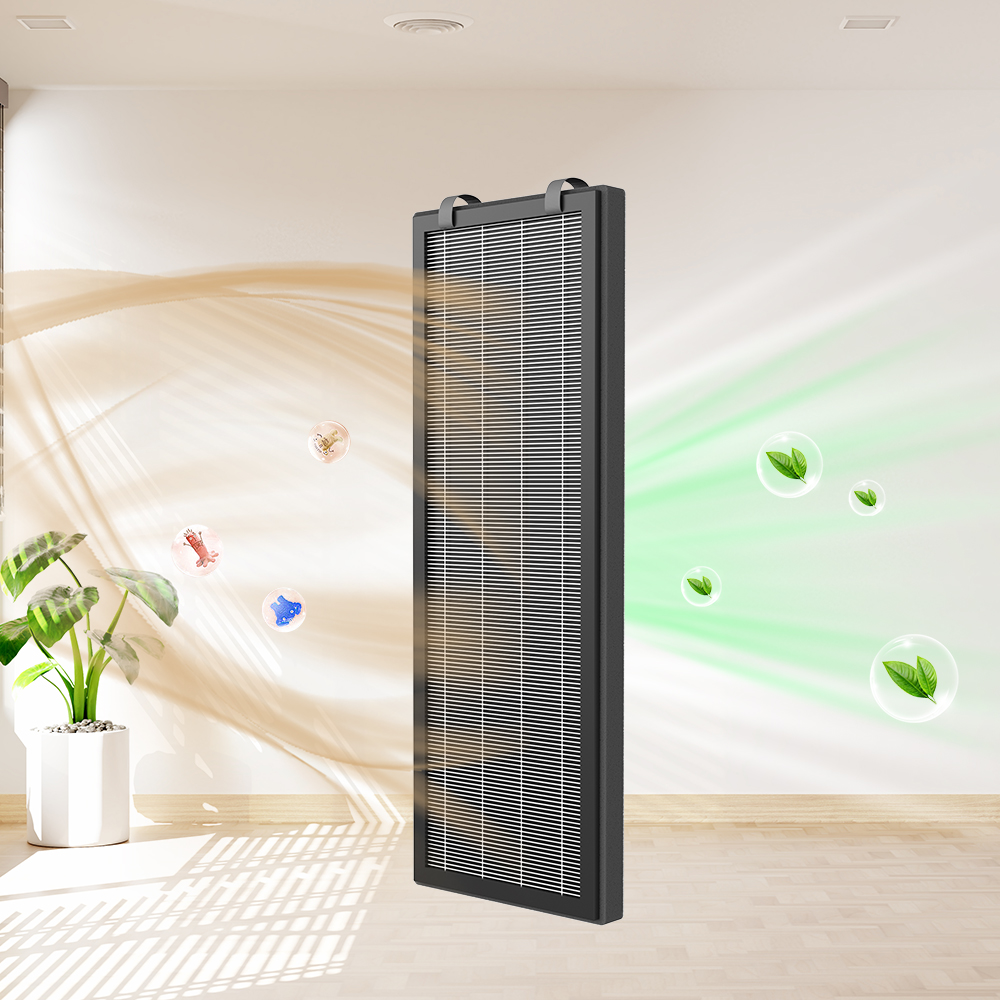
How HEPA Filters Work
HEPA filters operate by forcing air through a fine mesh that traps harmful particles, unlike conventional filters that may miss smaller pollutants (source). This filter is highly effective in removing 99.97% of airborne particles, capturing allergens and irritants to provide clean, breathable air. In air purifiers, HEPA filters operate continuously, maintaining high air quality throughout the day.
HEPA Filters vs. Other Filtration Technologies
In comparison with other air purification methods, such as ion generators, plasma filters, or UV light, HEPA filters offer a safer, more reliable option for human health. Ionization and plasma technologies produce ions or reactive particles that can lead to ozone formation3—a respiratory irritant (source). HEPA filters, however, physically capture particles without releasing any byproducts, making them the preferred choice for maintaining indoor air quality.
HEPA filters can trap gases like VOCs.False
HEPA filters are designed to capture particles, not gases or odors; an activated carbon filter is needed for VOCs.
Comparing Filtration Technologies
To help understand the differences, here’s a comparison chart of various filtration technologies and their characteristics:
| Filtration Technology | Efficiency | Byproducts | Common Applications | Key Benefits | Limitations |
|---|---|---|---|---|---|
| HEPA Filter | High | None | Homes, hospitals, | Removes 99.97% of particles | Does not remove gases like VOCs4 |
| offices | down to 0.3 microns | ||||
| Activated Carbon | Moderate | None | Air purifiers, HVAC | Adsorbs VOCs, odors | Less effective for particulates |
| Ion Generator | Moderate | Ozone | Industrial, | Reduces allergens and particles | Ozone may irritate respiratory system |
| air purifiers | |||||
| UV-C Light | Variable | None | Hospitals, labs, | Destroys bacteria and viruses | Limited effectiveness for particles |
| air purifiers | |||||
| Plasma Technology | High | Ozone | Industrial | Effective for sterilization | Produces reactive particles |
Ideal Uses for HEPA Filters
HEPA filters are commonly used in homes, hospitals, offices, and any setting where clean air is a priority. They are especially helpful in alleviating allergies and respiratory issues5. By capturing fine particles and allergens, HEPA filters create a healthier indoor environment. In medical settings, HEPA filters ensure pathogen-free air, minimizing contamination risks.
What Does HEPA Stand For?
HEPA, or High-Efficiency Particulate Air, is a standard for air filtration effectiveness. HEPA filters must remove 99.97% of particles down to 0.3 microns, which is the size of many airborne pollutants. This high efficiency helps reduce allergens, bacteria, and pollutants, contributing to a healthier environment (source).
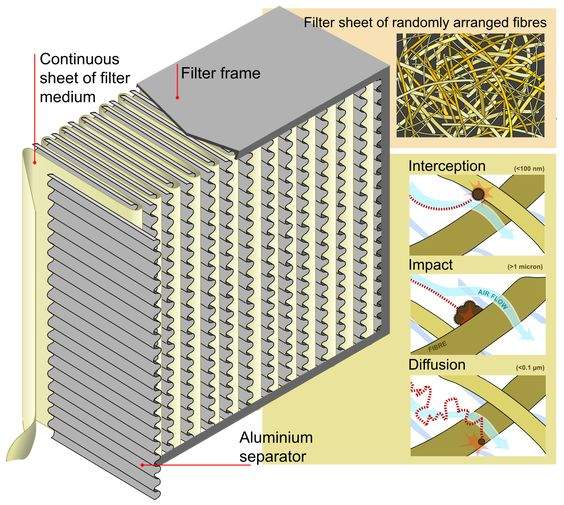
Standardized for Quality
The HEPA standard, set by regulatory agencies, ensures that filters meet the necessary efficiency for air purification. This standard makes HEPA filters a reliable choice for settings that demand consistent, high-quality air filtration.
Benefits of Using HEPA Filters
HEPA filters offer numerous benefits beyond allergen removal. Their fine filtration reduces respiratory issues and creates a cleaner, safer environment, especially in spaces with vulnerable populations, such as children, the elderly, or individuals with health conditions6.
HEPA filters improve air quality significantly.True
HEPA filters trap microscopic particles, making them highly effective in improving indoor air quality.
The Origins and Advancements of HEPA Technology
HEPA technology was initially developed by the U.S. military during World War II to protect soldiers from airborne radioactive particles7. Since then, HEPA filters have evolved to serve various industries, including healthcare, commercial spaces, and residential applications.
Advancements in HEPA Media Technology
Modern HEPA filters now feature advanced media technology that allows for higher airflow with low resistance8. This advancement means that air purifiers equipped with HEPA filters can clean larger volumes of air efficiently without high fan speeds, reducing noise and energy use. These improvements have made HEPA filters even more effective, bringing cleaner air to more people.
Why Do HEPA Filters Need Carbon Filters?
While HEPA filters are excellent at capturing particles, they cannot remove odors or gases, such as volatile organic compounds (VOCs)9. To address this, many air purifiers pair HEPA filters with activated carbon filters, which adsorb VOCs and odors, making them an ideal combination for comprehensive air quality management.
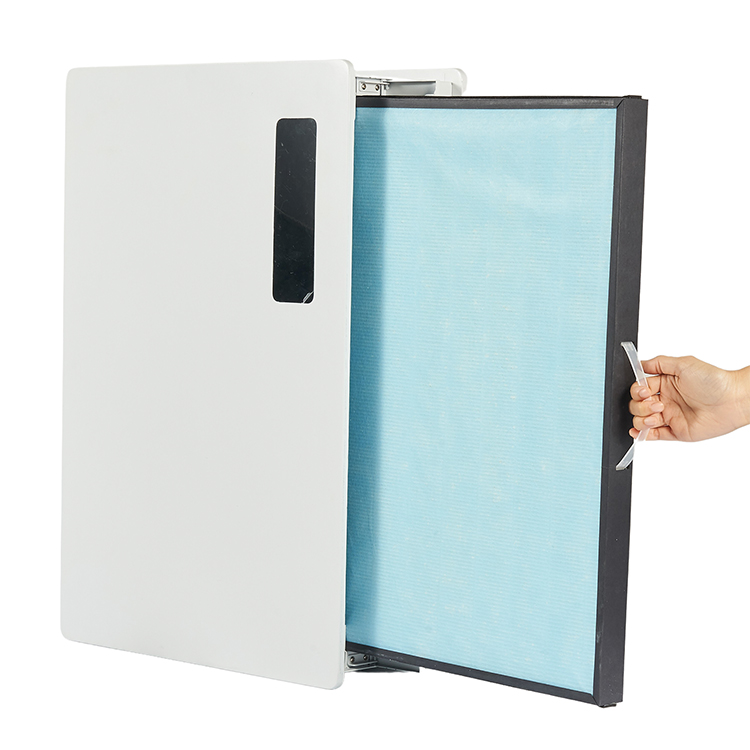
When to Use Both HEPA and Carbon Filters
In environments where air pollution includes gaseous pollutants (e.g., from paints, cleaning products, or smoking), combining HEPA and carbon filters can deliver more comprehensive air purification. This combination ensures the removal of both particles and harmful gases, creating a fresher environment.
Advantages of Dual Filtration
Using HEPA with carbon filtration can effectively reduce common allergens and odors, creating a fresh and clean environment. This dual approach is particularly beneficial in settings like schools, offices, and homes where VOCs may be present.
HEPA and carbon filters provide comprehensive air cleaning.True
Together, these filters capture particles and adsorb VOCs and odors, ensuring cleaner air.
Benefits of HEPA Filters in Air Purifiers
HEPA filters are essential for high-quality air purification, reducing contaminants and enhancing air quality in any environment.
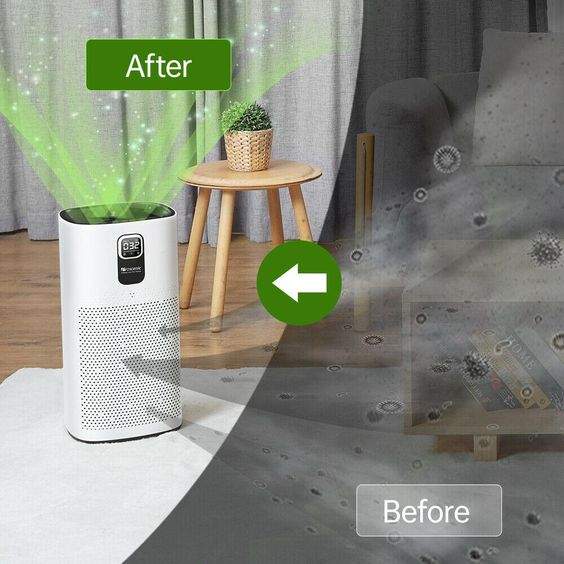
Enhancing Air Quality with HEPA Filters
HEPA filters capture particles that trigger respiratory issues, benefiting households with pets or located in urban areas with high pollution levels. The filters reduce allergens, dust, and dander, providing a healthier atmosphere.
Low Maintenance, High Efficiency
HEPA filters are durable and typically require replacement only every 6–12 months, depending on usage. Their long lifespan and low maintenance requirements make them a cost-effective solution for long-term air quality management10.
HEPA filters are low-maintenance.True
HEPA filters require infrequent replacement, offering convenience and reliability.
Conclusion
HEPA filters are a proven, highly effective solution for improving indoor air quality by capturing fine particles, thus ensuring cleaner, healthier environments. Originally developed by the military, HEPA filters continue to be a preferred choice for air purification across homes, workplaces, and medical facilities due to their safety, reliability, and continuous advancements.
-
HEPA Filtration Efficiency: HEPA filters remove 99.97% of particles at 0.3 microns, making them ideal for removing fine particles and allergens. ↩
-
Medical Use of HEPA Filters: HEPA filters are commonly used in medical facilities to ensure pathogen-free air and reduce contamination. ↩
-
Risks of Ionization Filtration: Ionization and plasma technologies may emit ozone, which can irritate the respiratory system. ↩
-
HEPA and VOC Filtration: While HEPA is effective for particles, VOCs require an activated carbon filter for absorption. ↩
-
HEPA for Allergy Relief: HEPA filters are effective for reducing allergens in the air, improving health for sensitive individuals. ↩
-
Health Benefits of HEPA Filters: HEPA technology helps reduce allergens, respiratory issues, and overall indoor air pollution. ↩
-
Military Origins of HEPA: Developed by the U.S. military, HEPA technology was initially used to filter radioactive particles. ↩
-
Advanced HEPA Media Technology: Innovations in HEPA filter media now allow for higher airflow and lower resistance in air purifiers. ↩
-
Using HEPA with Carbon Filters: Pairing HEPA with activated carbon improves air quality by removing particles and VOCs. ↩
-
HEPA Filter Maintenance: HEPA filters have a long lifespan and only need occasional replacement, making them cost-effective for long-term use. ↩


